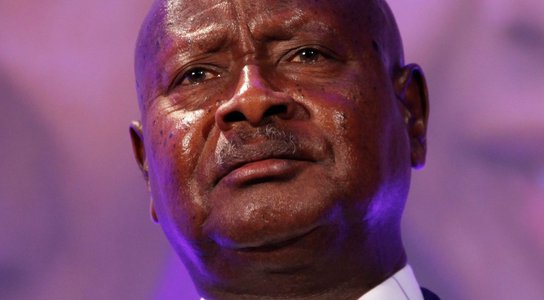It is a paradox common to many of the countries Global Witness works in that they are rich in the resources that feed consumption in the rich world, but the majority of their people remain poor.
The scramble to cash in without putting the right safeguards in place often means that the environment gets trashed, local tensions boil over and small, corrupt elites amass huge fortunes which they stash and spend overseas. Meanwhile, the international community pours in aid money without asking the right questions about what is happening to the revenues that should be building the schools and hospitals. We first saw this dynamic at work in our initial investigation in Cambodia, and have since documented it in many other countries from Angola to Kyrgyzstan.
In Uganda in 2010, we saw a country at a crossroads. Four years previously it had discovered oil in its uniquely sensitive Albertine Graben region, home to 52 per cent of African birds and 39 per cent of the continent’s mammal species. Well-managed, the oil wealth could help lift a generation out of poverty, but the risks to people and environment were also clear – governance and systems to manage the promised oil boom were urgently needed.
Global Witness’ first intervention in Uganda highlighted these concerns to the country’s international donors. Our briefing called on them to learn the lessons from other developing countries, and use their leverage to help the government put in place systems to manage the money and the extraction process openly and sustainably.
Following this work, Global Witness published the first analysis of Uganda’s draft oil laws, highlighting concerns over excessive ministerial control, poor oversight and a lack of provisions to ensure transparency and protect people and environment.
As the bills passed through parliament we worked closely with policy makers and civil society to call for changes and offer recommendations on further amendments for the laws. This saw some positive changes, we made clear that much more needed to be done to ensure that revenues from the sector were transparently managed as set out in this briefing.
In 2014, we published two Production Sharing Agreements signed by the Ugandan Government and foreign oil companies and a thorough analysis of them. Until now, these contracts were not available to the public, so people were unable to see if their government had struck a good and fair deal for their oil.
We also published the world’s first open source contract modelling tool for natural resources revenues, allowing citizens to see what their oil might be worth, and how good a deal their government has secured, as variables like oil prices change, and make better informed decision about how this money should be managed. You can play with revenue infographic below. The model is already being adapted for use in other countries which face the same questions as Uganda. This is a powerful boost for the open contracting movement which is key to good governance in the extractive sector.
Global Witness analysis found that while the oil contracts put more money in state coffers than previous contracts signed by government we cannot follow payments made by international oil companies into government accounts. Greater revenue transparency on the part of the government is needed to match the new EU and US laws which require companies to publish payments to make sure Ugandan’s can account for their oil money. We also discovered that the contracts, even when considered alongside the relevant laws, do not contain adequate measures to protect Ugandan citizens and their environment. The Lake Albert region, where oil exploration is currently taking place, is one of the most ecologically diverse areas in the world and yet it is afforded minimal protection under these contracts. Global Witness only found this out because they had seen the contracts.
If Uganda and its donors want to use its oil and the emerging mining sector to build a peaceful and prosperous future, they must learn the lessons of the past. Global Witness is pushing for more transparency and guarantees that people and environment will be protected as Uganda moves to extract its oil and minerals. With the government on the verge of allocating a raft of new contracts to international oil companies there is a window of opportunity to improve regulations and the new model oil contract to make sure people and their environment are sufficiently protected. Global Witness is calling for a transparent allocation process for the remaining rights, improved environmental and social protection in contracts and laws and greater capacity and political will to implement these measures.
You might also like
-
Briefing Uganda's donors must push for oil transparency
Donor engagement in Uganda's oil and gas sector.
-
Blog post The Anti-homosexuality law is far from the only clamp down on civil liberties in Uganda
Latest clampdown on human rights and civil liberties in Uganda is just the tip of the iceberg.
-
Press Release Uganda: World Bank must insist on oil sector transparency before approving loan
